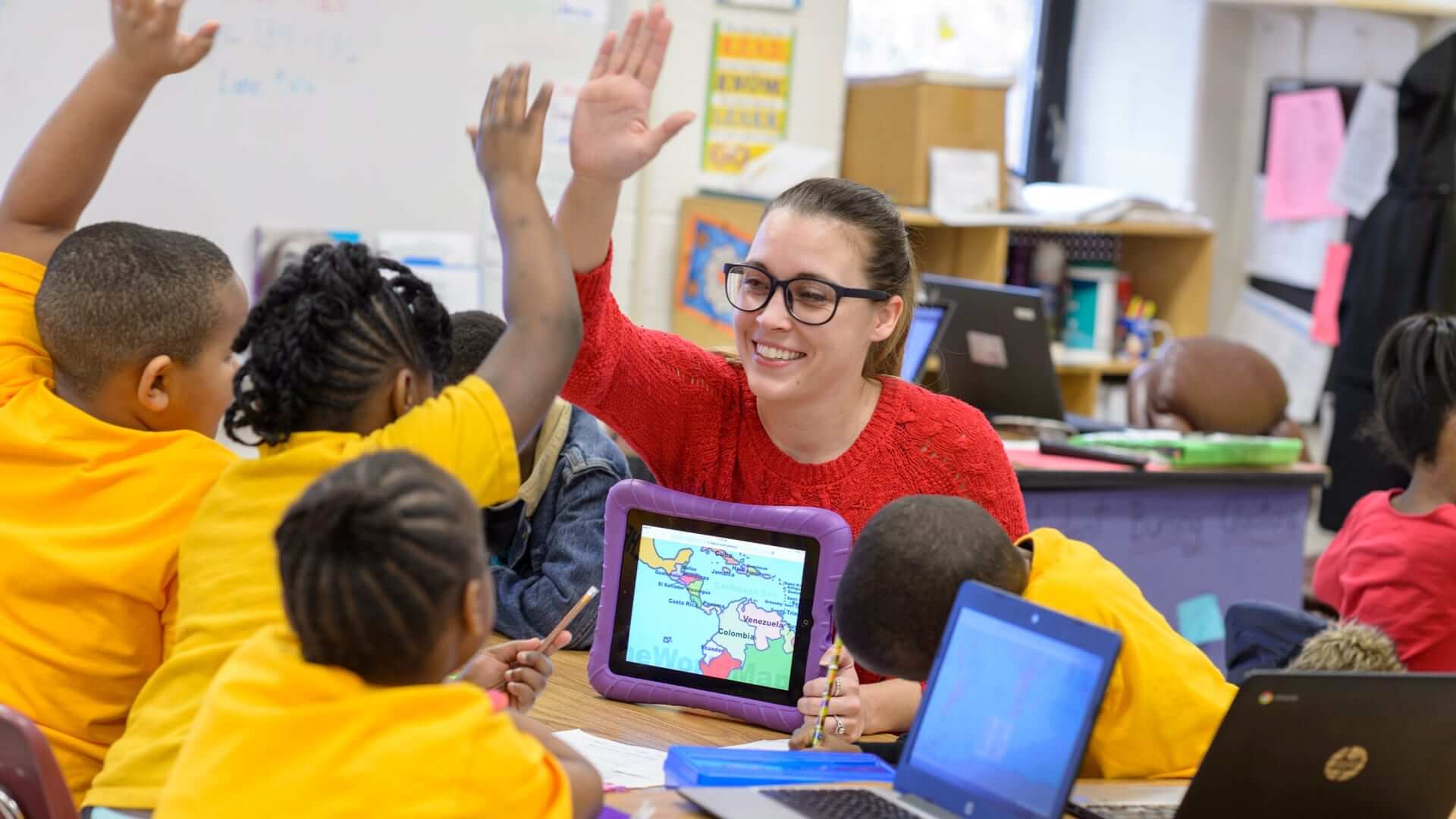Many people believe that the first few years of a child’s life are critical and sensitive; therefore, learning opportunities should be taken advantage of in order to stimulate their brain development.
The first three years of childhood play an important role in 80 per cent of brain development, while another 10 per cent is gained in the following two years. Therefore, about 90 per cent of brain development is shaped by the learning outcomes children have before entering primary school.

Early Childhood Education (ECE) is one of the solutions to accommodate the needs of children to achieve their optimal growth. As a developing country that emphasises education, Indonesia has been actively increasing the development of ECE in rural and remote areas through its government, along with some development agencies. According to The Jakarta Post, approximately 100,000 ECE centres have been built and managed by local communities. The rate of national pre-school enrolment has escalated from a mere 27 per cent in 2007 to 73.50 per cent in 2017. These statistics show the dedication of the Indonesian government to foster ECE development, which has grown people’s awareness about this issue.
Why ECE?
Armida Torres Ramos, an experienced Filipino pre-school teacher at Mighty Minds Pre-School Jakarta, shared with me her perspectives on the importance of attending an ECE centre. Armida explained that ECE centres are about: the education of an infant, starting from 6 months old; toddlers aged 1-3 years old; and preschoolers who are 4-6 years old. It’s essential to prepare children to be independent as well as to introduce the children to numeracy and reading before they first set foot in a primary school.
Different nursery schools will create different outcomes too. Armida talked about the differences between international and national nursery schools and how they can affect the children’s learning experience. “In international nursery schools, children are used to cultural differences. Their teachers and classmates come from all over the world, bringing distinctive cultures and customs. It makes them learn to embrace the diversity that will enable them to understand new cultures and even languages. Moreover, international nursery schools have all of the necessary resources to equip children to explore their sensory integration, whereas, in national nursery schools, the classes are usually very big, comprising 60-65 students with fewer resources, making it ineffective for the children to absorb all of the knowledge,” she elaborated. Unluckily, most international nursery schools are way more expensive than national ones.
What Do Children Learn During an ECE?
Although there are certain cognitive stages of childhood development that have to be completed in ECE, it is not intimidating and stressful at all. Armida revealed that she gives her students all the privileges to learn and explore anything by doing simple tasks such as tying shoelaces, eating independently, and recognising the sense of touch. “Those simple activities may not be offered at most primary schools but we need to familiarise the children with them in order to avoid culture shock later. This method is called play-based learning, which makes it very enjoyable for the children,” she said. Armida added that the complexity of learning also increases as the children get older – for example, learning to draw, sing, read, and many others.

Moreover, ECE is never about competing and ranking, as Armida argued that there is no such thing as failing a term. Nursery school teachers are fully responsible for the development of their students by guiding them thoroughly until they reach the next level. It is a very long process indeed. Each student has different abilities compared to their classmates, and that makes them unique. “As a teacher, I have to push a student who seems left behind and give extra effort to develop their skills so that they can catch up with the others,” Armida said.
Competing, according to Armida, although needed to encourage a child’s sense of competition, isn’t suitable to be taught in ECE because it can develop greed and irrational ambitions. In this sense, she suggested that children should learn to cooperate with their peers. Allowing them the opportunity to express themselves as well as giving constructive feedback afterwards can contribute to boosting their confidence. “Students are encouraged to compete only in a game to reduce feelings of resentment when losing,” she asserted.
ECE Is Useless without the Support from Parents
ECE goes hand in hand with parents’ actions. The connection between the two cannot be separated as both must support the other. There might be a time when parents are too busy and they are incapable of monitoring their children, so they send their children to the best nursery school in town, hoping to replace the role of parents. In fact, parents are actually the primary caregivers of their own children. Therefore, ECE cannot work at its best without support from parents, because children spend the most time at home rather than at nursery school. Teachers only guide their sensory development while parents must improve it at home.
Armida indicated that teachers can tell if there is a child who is unhappy in their family. “Usually, they will throw tantrums all the time. Some who can communicate would even tell me what is going on in their family. Thus, a teacher has to be able to be a great listener and supporter too,” she said.
To tackle the problem, Armida pointed out that nursery school educators must build strong communication with parents through certain methods, such as sending an e-mail and communication book that indicates reports and evaluations of the skills gained by the children. She even invites parents to a personal talk with her when the parents seem to neglect their children. She claimed that strong communication ties are effective in enhancing parents’ consciousness about the importance of their active engagement in the children’s development.
On top of that, ECE is the key to the maximum development of a child’s sensory network. Sending them to nursery school can be one idea to help them to be exposed to various learning activities. At nursery school, children will have a child-friendly environment where they can build on their sense of right and wrong, as well as recreate the brain function that would endow them for the next stage of education. However, an ECE centre cannot be the only one who contributes. It still requires parents’ playing a supportive role in order to accomplish the best learning outcome for each child. By integrating the responsibility of parents and teachers along with loving fulfilment from both parties, children will be able to develop their sensory, motor, and cognitive skills to the greatest extent.
ALSO READ IMPORTANCE OF STEM IN EDUCATION – Connect Your Passion to the Evolution of Technology




